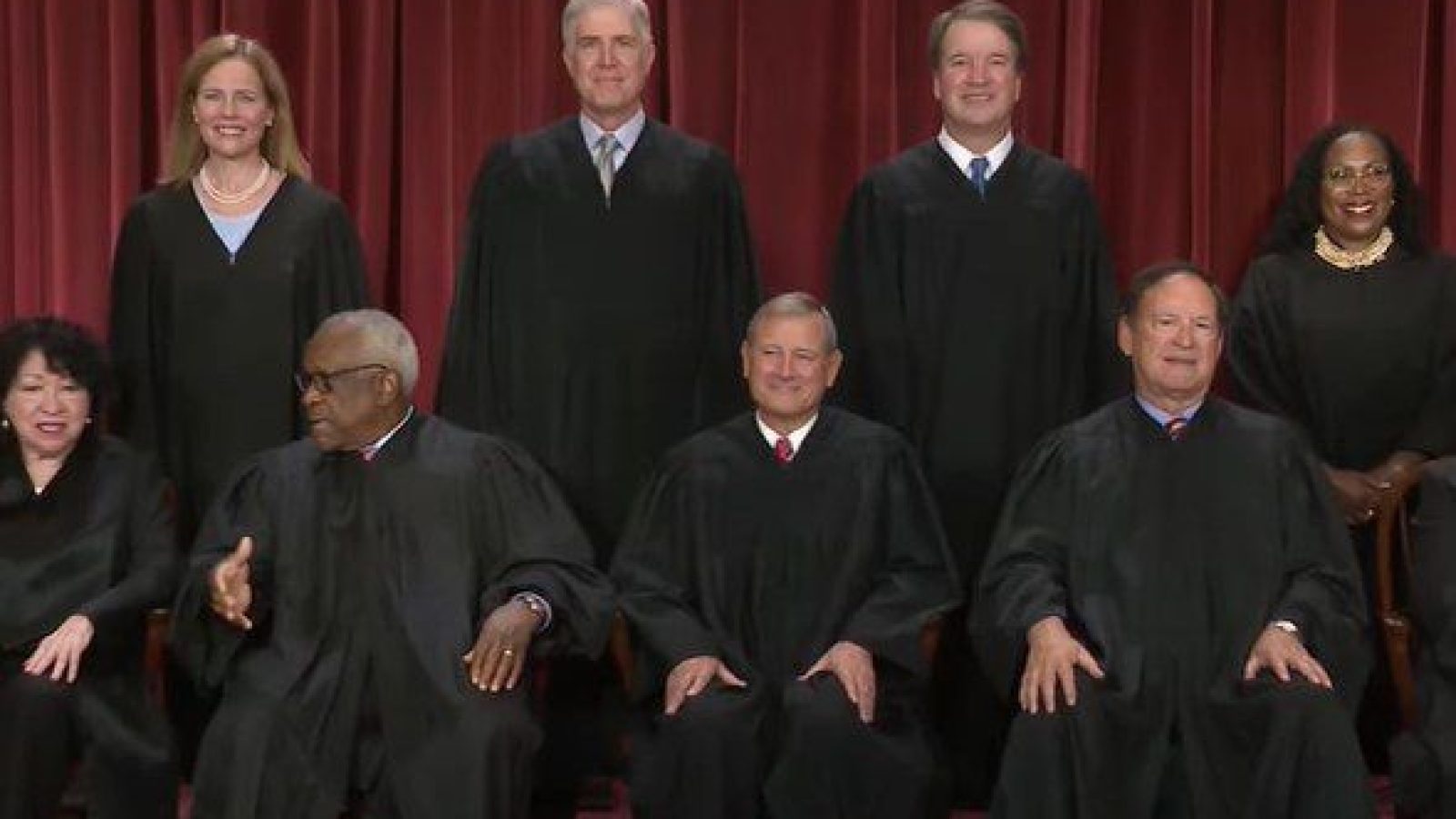In a 6-3 ruling the United States Supreme Court has ruled that “state judges do have the authority to override state legislatures when it comes to how federal elections are conducted.”
The ruling is a major blow to Republicans due to the fact it will take away the sweeping power from GOP legislatures to draw congressional maps and regulate federal elections.
It will now eliminate the “independent state legislature theory” which helped many red states have a GOP majority in the House.
The decision was led by Chief Justice John Roberts and “was joined by all three of the court’s liberals — Justices Sonia Sotomayor, Elena Kagan and Ketanji Brown Jackson — and conservative Justices Brett Kavanaugh and Amy Coney Barrett.”
The original case that was in dispute was Moore v. Harper, which was a constitutional argument over the authority of a state court to control federal elections.
https://twitter.com/Travis_in_Flint/status/1673703339933016064
Here’s what The Hill reported:
A 6-3 decision from the Supreme Court on Tuesday rejected a bid to give state legislatures sweeping authority in drawing congressional maps and regulating federal elections, declining to endorse the so-called “independent state legislature” theory.
ADVERTISEMENTThe majority opinion, which united the court’s three liberals with Chief Justice John Roberts and two conservative justices, preserves the ability for state courts to hear partisan gerrymandering lawsuits in congressional redistricting and review other federal election rules set by state legislatures.
It hands a defeat to North Carolina Republican lawmakers, who advanced the theory as they appealed a lawsuit involving the state’s congressional map.
The lawmakers had argued the federal Constitution vests the authority for regulating federal elections exclusively in state legislatures, meaning the North Carolina Supreme Court and state constitution had no power to block the Legislature’s approved congressional map.
“The Elections Clause does not insulate state legislatures from the ordinary exercise of state judicial review,” Roberts wrote for the majority.
Obama reacts: “Fringe” independent state legislature theory “threatened to upend our democracy”
Roberts’s opinion was joined by all three of the court’s liberals — Justices Sonia Sotomayor, Elena Kagan and Ketanji Brown Jackson — and conservative Justices Brett Kavanaugh and Amy Coney Barrett.
BREAKING: U.S. Supreme Court issues decision in Moore v. Harper. The Court rejects the independent state legislature theory, ruling that state courts have the power to review election laws and maps enacted by state legislatures. https://t.co/g6UJySp48L pic.twitter.com/RaYSXP3ugf
— Democracy Docket (@DemocracyDocket) June 27, 2023
Breaking:
The Supreme Court dealt a blow to Republicans in congressional redistricting cases nationwide. The Supreme Court rules that Judges have the authority to override the State Legislature on election issues.
Republicans argued they could draw election maps because they… pic.twitter.com/NeUtPmwfAL
— 🇺🇸 Larry 🇺🇸 (@LarryDJonesJr) June 27, 2023
Here’s what Fox News reported:
The Supreme Court ruled Tuesday that state judges do have the power to override state legislatures when it comes to how federal elections are carried out.
ADVERTISEMENTIn a 6-3 opinion authored by Chief Justice John Roberts, the high court ruled that the Elections Clause of Article 1 of the U.S. Constitution “does not insulate state legislatures from the ordinary exercise of state judicial review.”
Justices Sonia Sotomayor, Elena Kagan, Brett Kavanaugh, Amy Coney Barrett and Ketanji Brown Jackson were in the majority. Justice Clarence Thomas dissented, in which Justice Neil Gorsuch and Samuel Alito joined.
“State courts retain the authority to apply state constitutional restraints when legislatures act under the power conferred upon them by the Elections Clause,” Roberts wrote.
“But federal courts must not abandon their own duty to exercise judicial review. In interpreting state law in this area, state courts may not so exceed the bounds of ordinary judicial review as to unconstitutionally intrude upon the role specifically reserved to state legislatures by Article I, Section 4, of the Federal Constitution,” the majority opinion states.
At issue in the case, Moore v. Harper, was a constitutional dispute over the power of a state court to regulate federal elections – in this case, gerrymandered redistricting maps. Some state lawmakers were seeking a favorable interpretation of the “independent state legislature” (ISL) theory, asking for near-total control over regulation of federal elections for president and members of Congress.
Supreme Court Delivers Massive 6-3 Ruling on Case That Could Upend 2024 Election. pic.twitter.com/9FDsh37qxW
— Conservative Brief (@ConservBrief) June 27, 2023



Join the conversation!
Please share your thoughts about this article below. We value your opinions, and would love to see you add to the discussion!